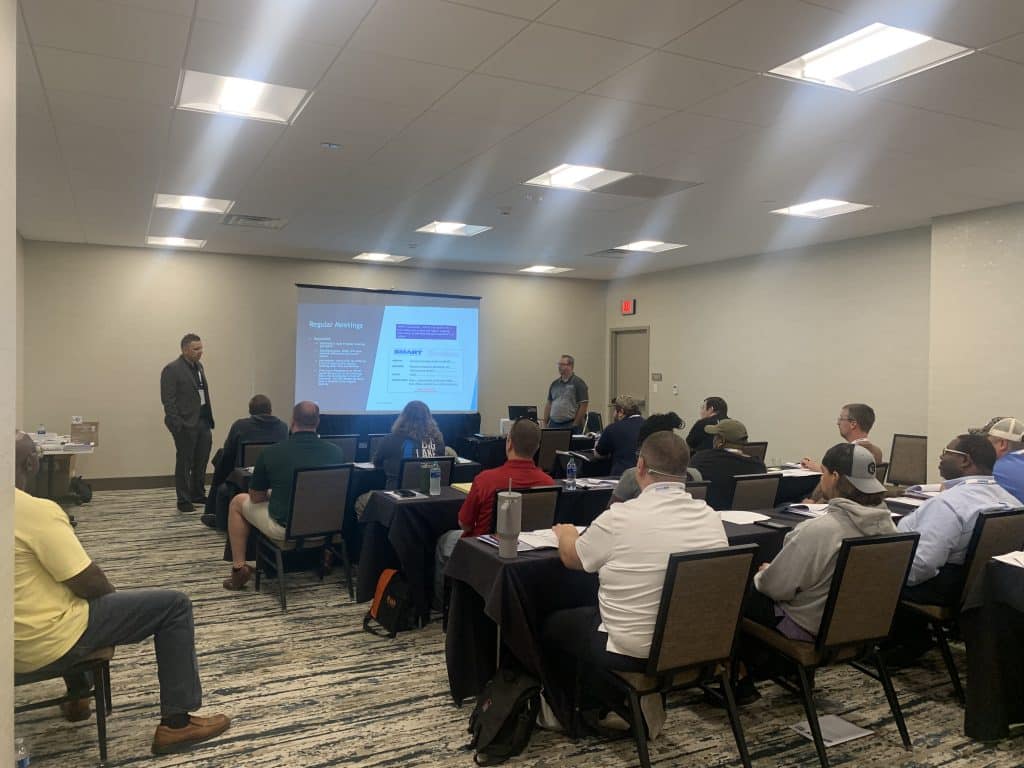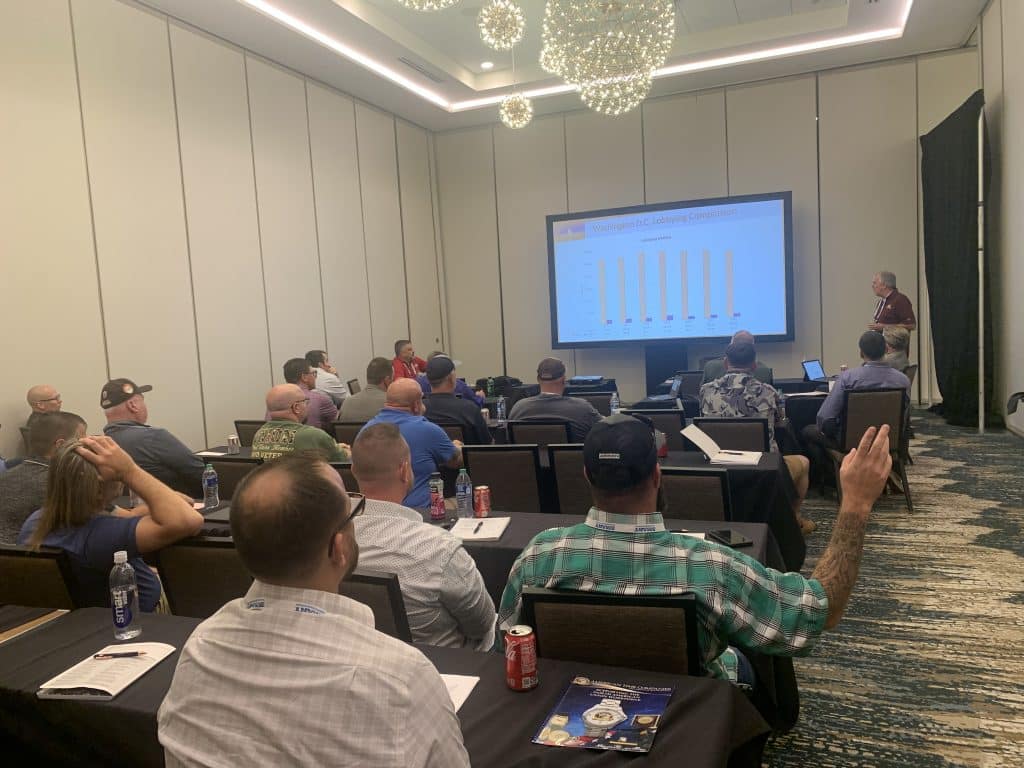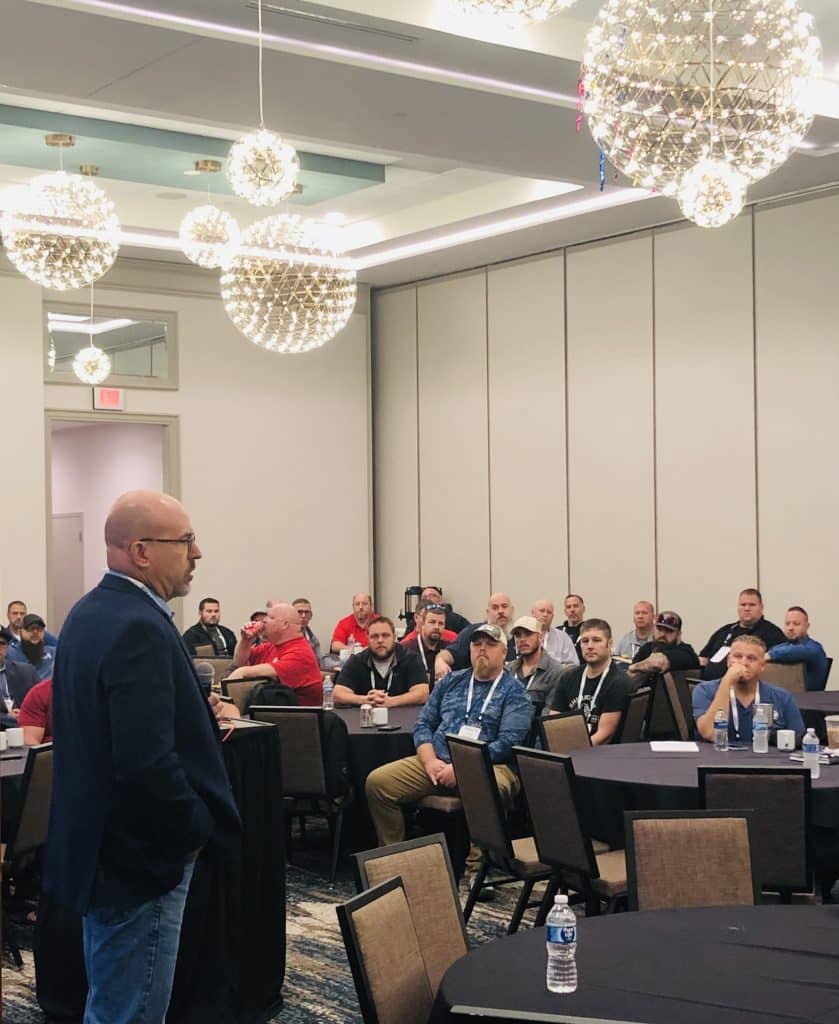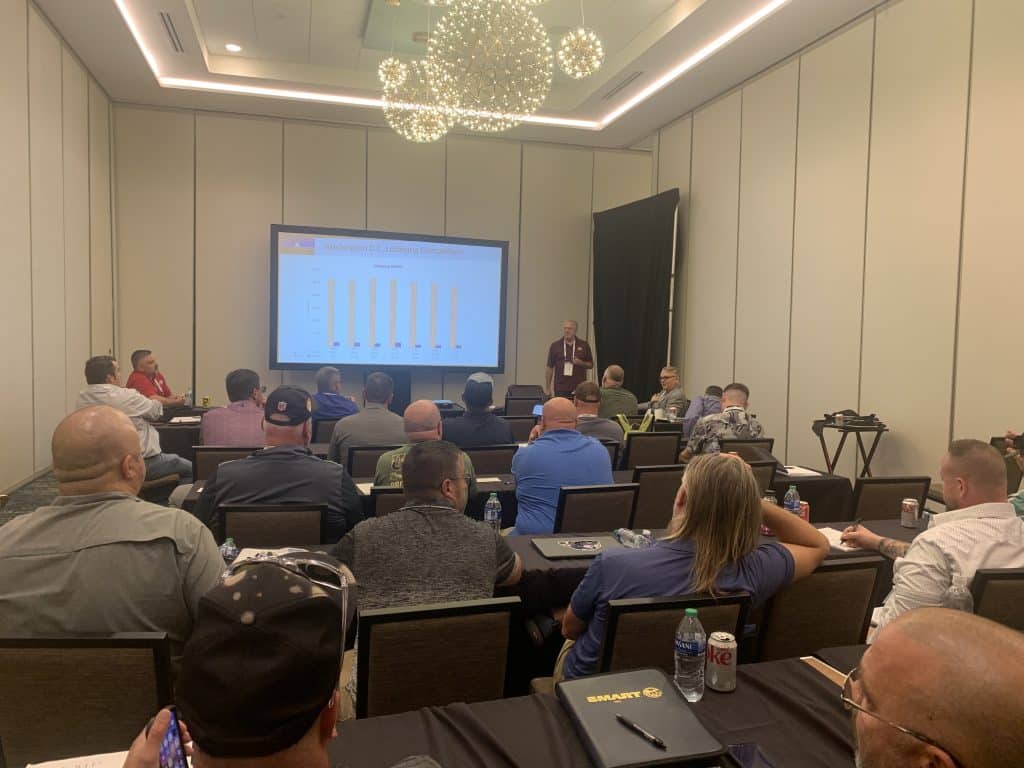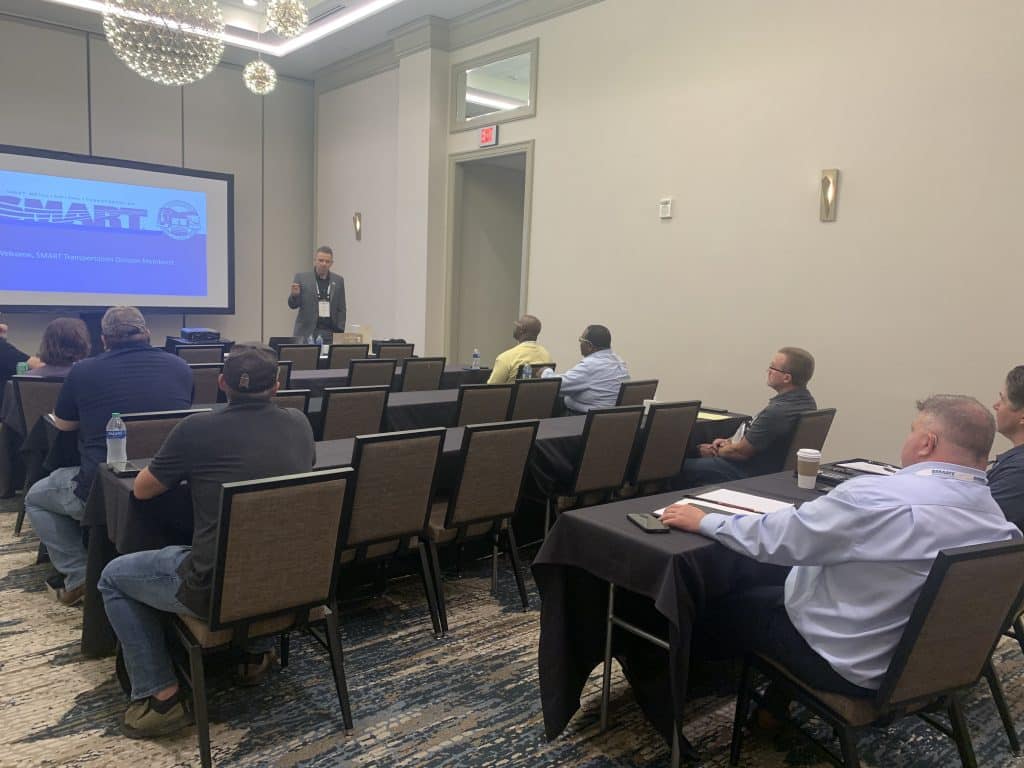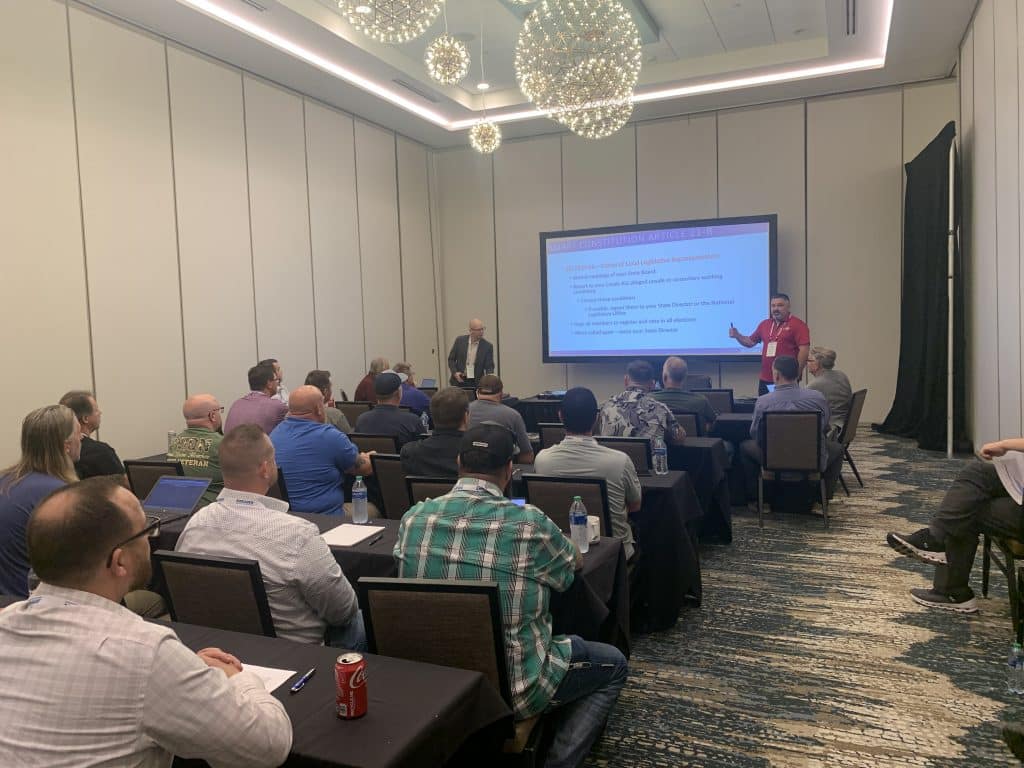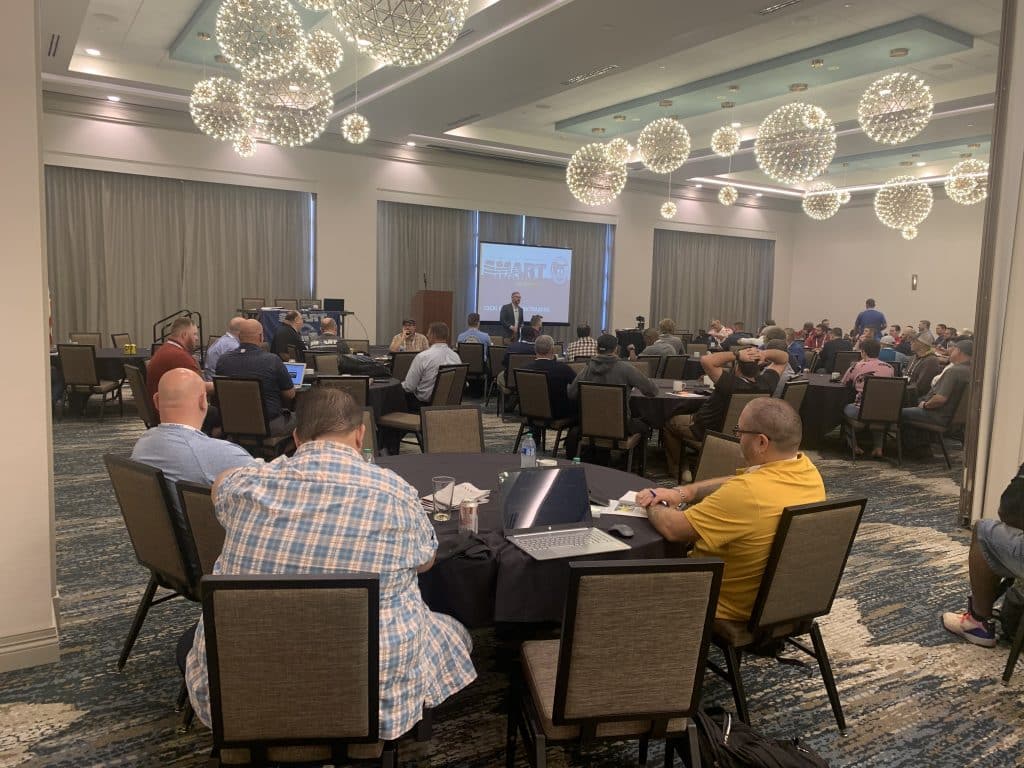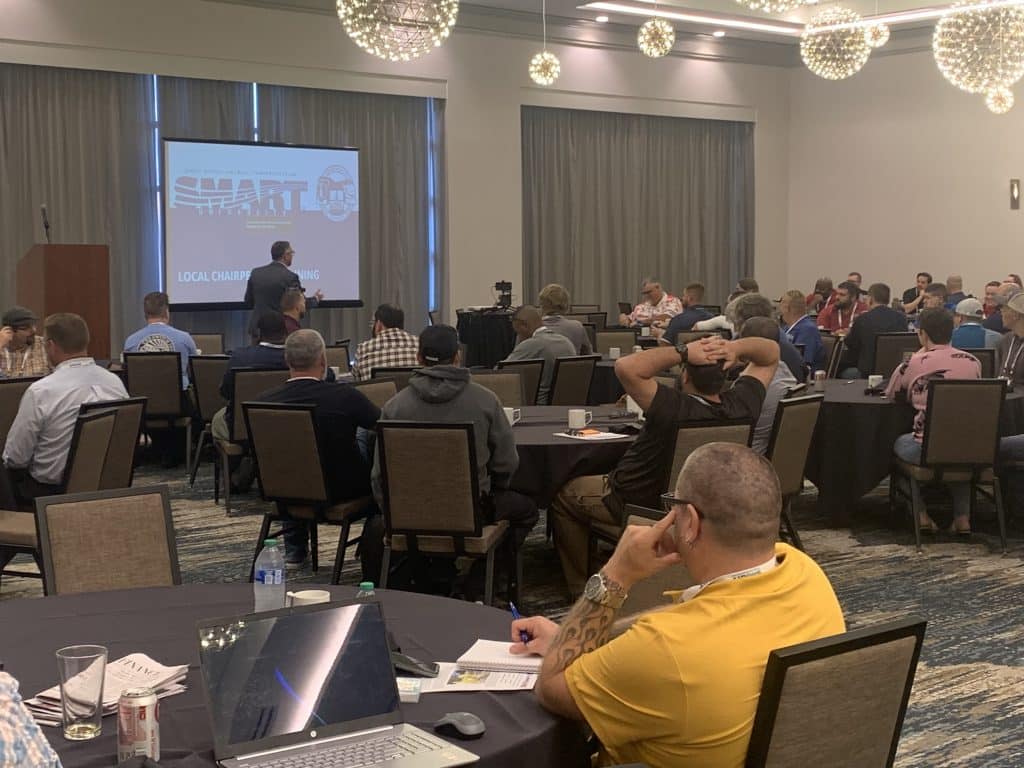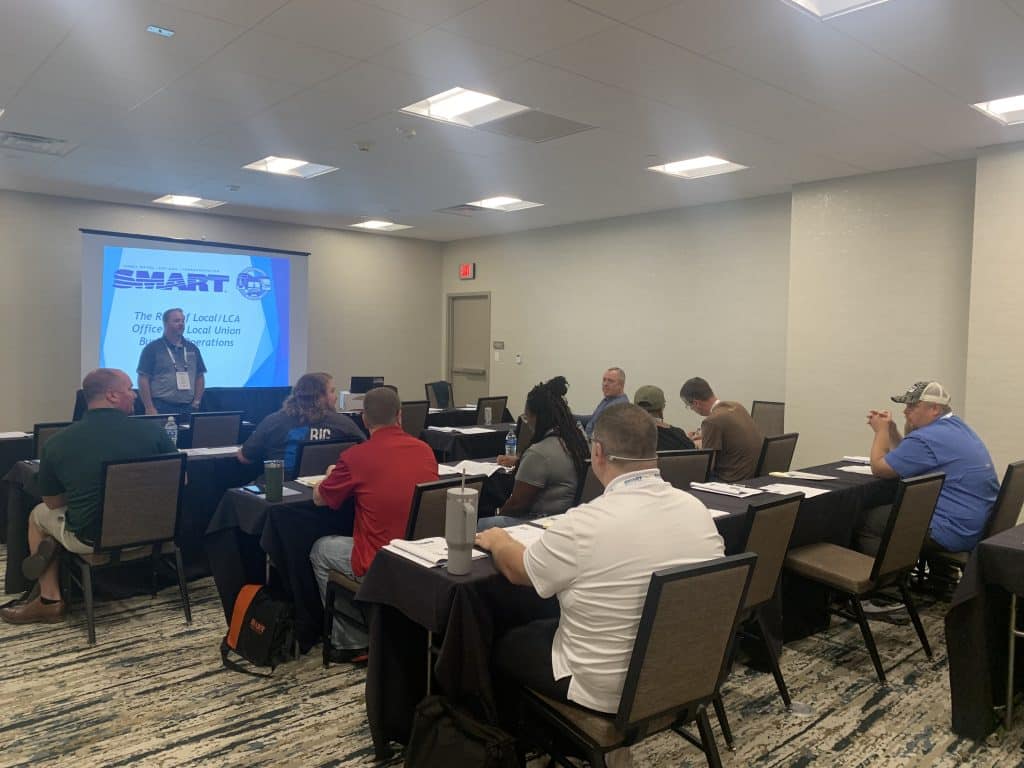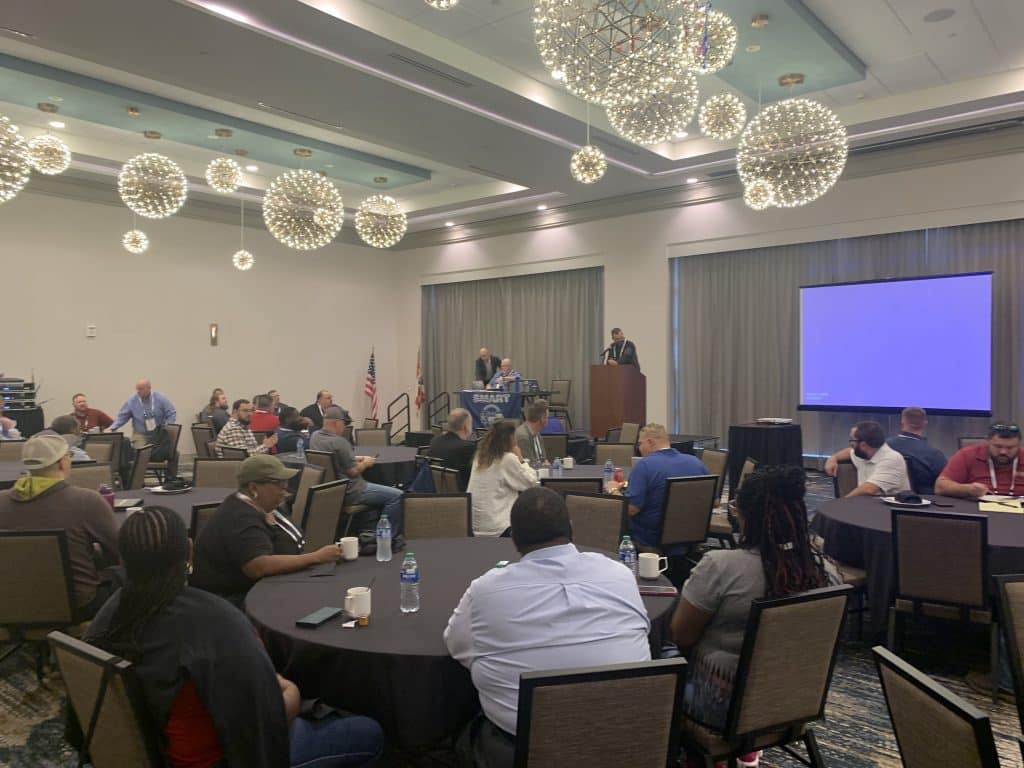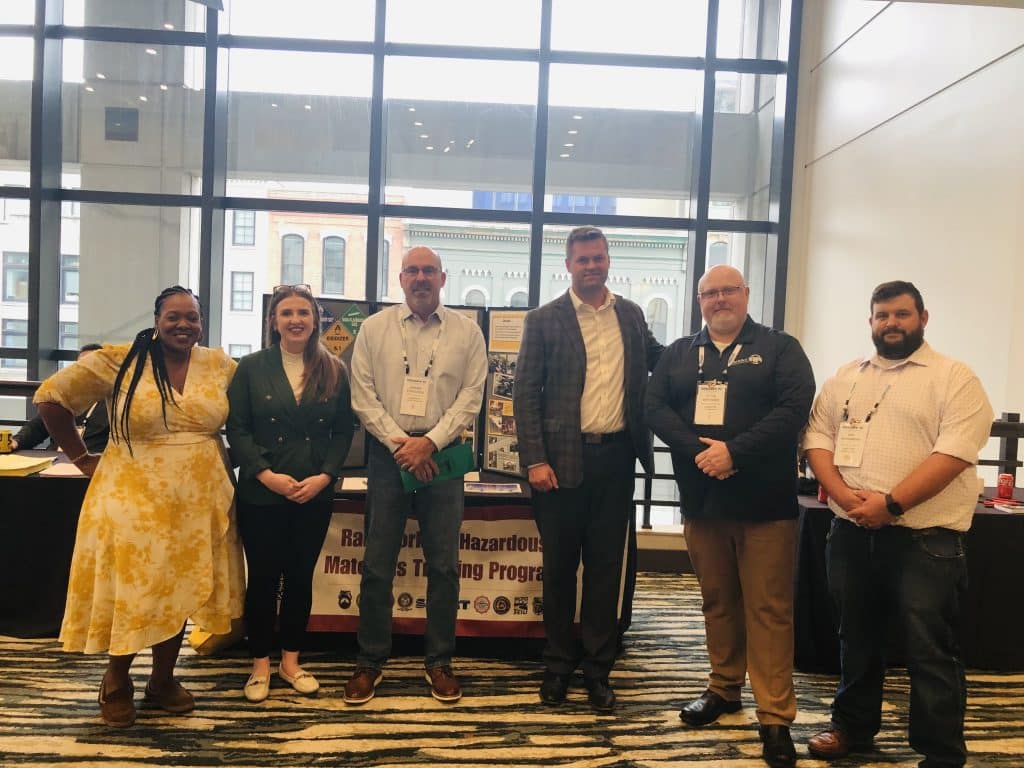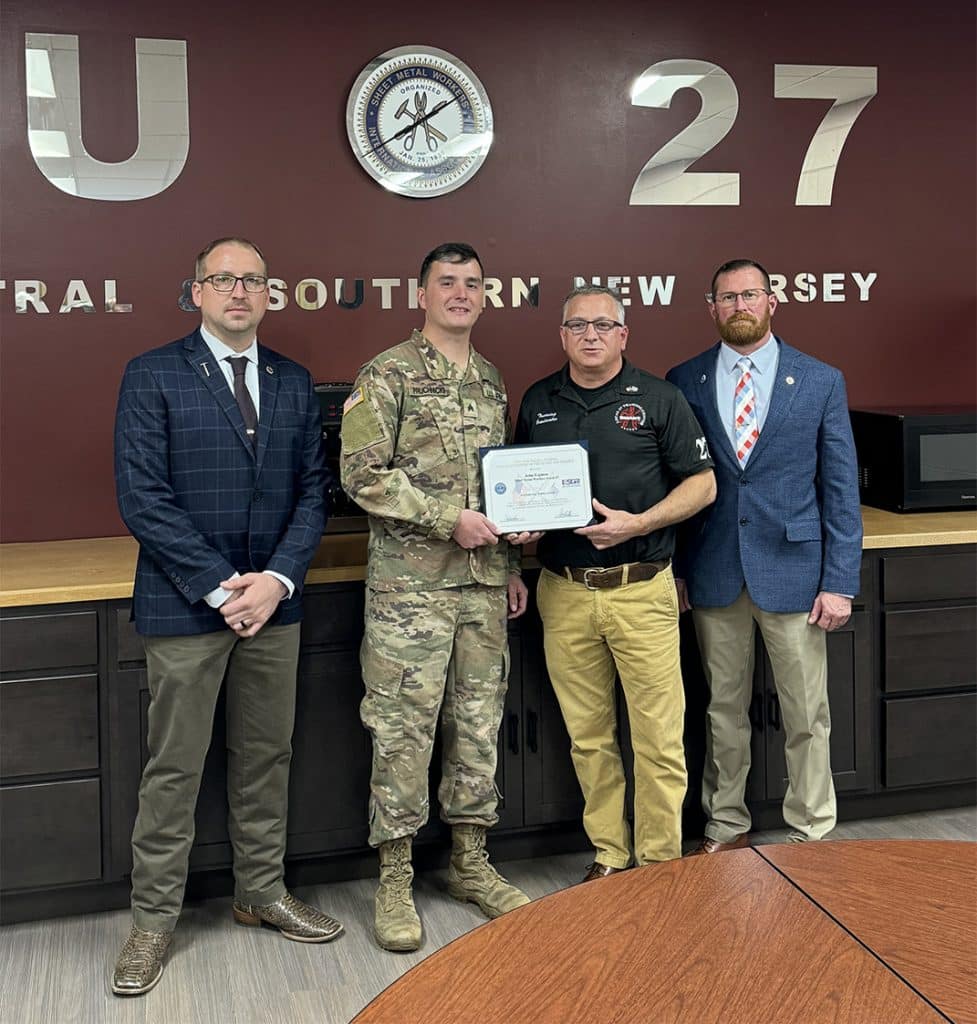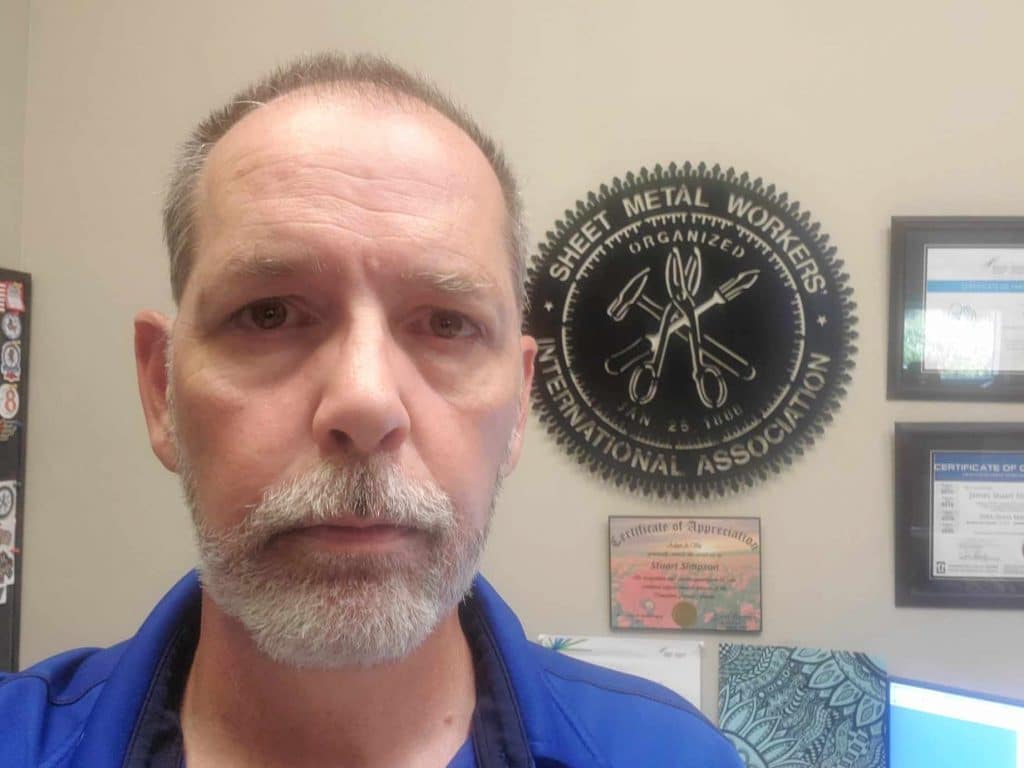SMART-TD’s shift to Regional Training Seminars (RTS) has been gaining momentum throughout 2022 and 2023. In early October, roughly 200 SMART-TD members gathered in Toledo, Ohio, and received intense, hands-on training on current trends and changes we are seeing from the Federal Railroad Administration (FRA), the Department of Transportation and the Department of Labor — and much more.
Participants were able to choose from a variety of training itineraries specific to their positions and needs. Classes for local chairpersons and vice local chairpersons were taught by SMART-TD Vice President Jamie Modesitt. The course aimed at legislative representatives was taught by SMART-TD’s National Legislative Department team of National Legislative Director Greg Hynes and Alternate National Legislative Director Jared Cassity. Those who chose the curriculum for local presidents were led for the week by Ralph Leichliter, senior assistant to SMART-TD President Jeremy Ferguson. The class aimed at secretaries and treasurers was taught by Brother John Purcell, a SMART-TD field support representative.
In addition to these primary instructors, the courses in Toledo’s RTS were supplemented by State Legislative Directors Kenny Edwards of Indiana, Don Roach of Michigan and Clyde Whitaker of Ohio. These three effective leaders not only coordinated the RTS, but also bolstered the coursework with some of their states’ best-demonstrated practices.
On Friday, October 6, SMART-TD President Ferguson addressed the general session of the RTS, where he broke down the importance of such trainings. Statistically, he noted, our union’s rates of successful appeals have gone way up in recent years, as well as the number of claims that have been paid on appeal. Regional Training Seminars play a large role in this heightened level of success.
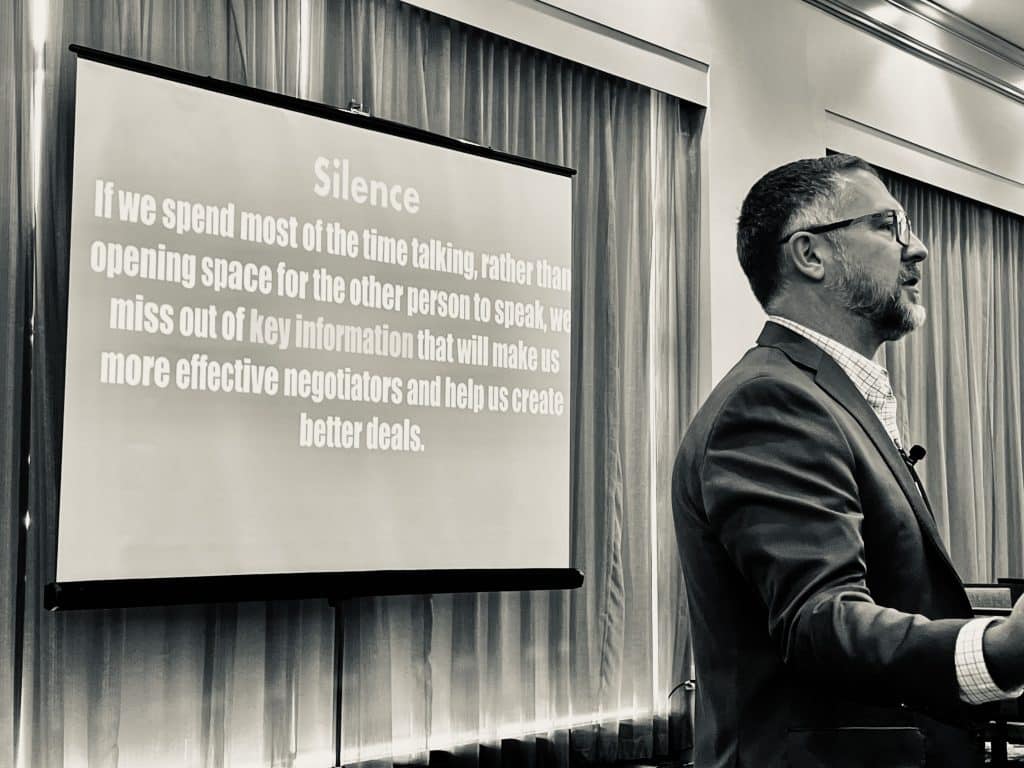
“We knew that we had a lot of young officers coming into this union,” Ferguson remarked. “We knew that we had a lot of young local chairmen coming in, and they were starving for training, starving for the information. How to handle themselves, write claims, and protect that member when they got charged. So, we had to answer that call.”
SMART-TD’s Regional Training Seminars have been a big part of “answering that call.”
“In the last two years, out of 369 cases that went to the First Division, 217 of those were sustained,” he said. “That’s a 58.8% win-to-loss ratio. When I first got involved, when Vice Presidents Modesitt and Brent Leonard got involved, we were happy with 22% to 25% coming out of a public law board. That is why we needed this training. … The cases we have in the pipeline are going to be even better than that. Why? Because we’ve been doing training like this. We’re not going to an annual regional meeting where we spend two hours a day in class and 20 hours talking shop.”
“This is what we’re doing with the member’s money,” Ferguson concluded. “We are helping officers get up to speed to where we need to be so we can back them up when their jobs and their lives are on the line out there on the ballast.”
